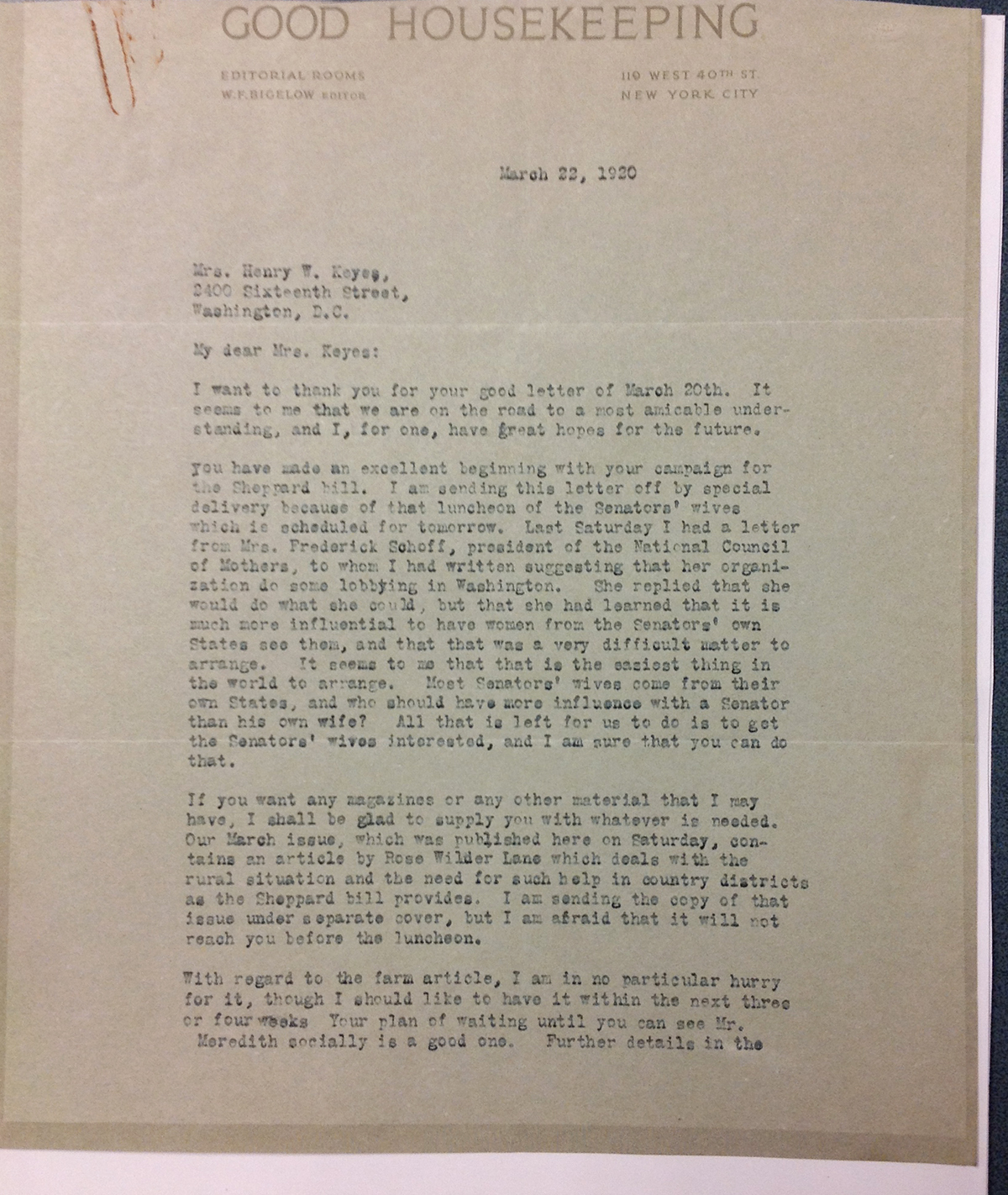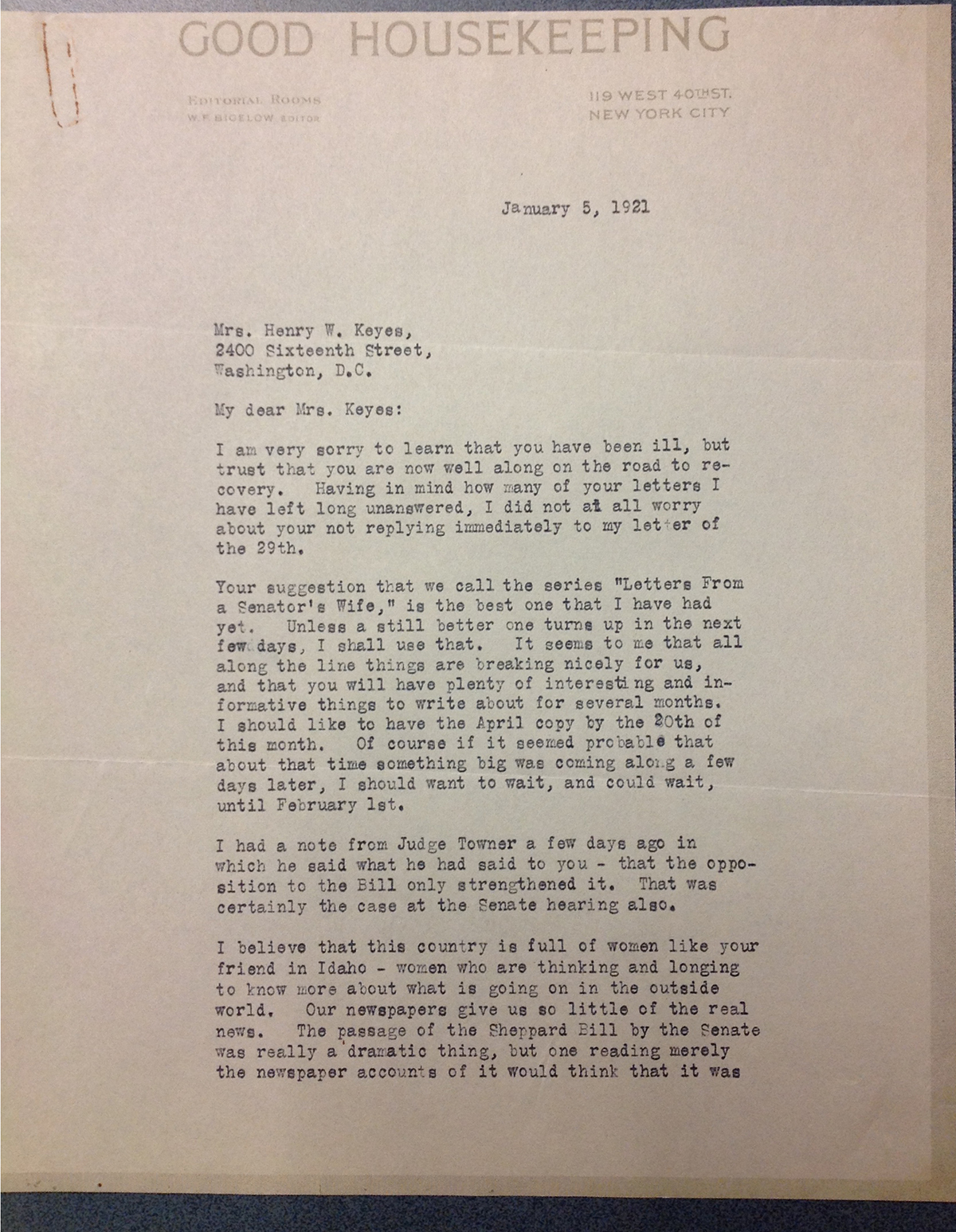Life in Washington, D.C. : Good Housekeeping

Letter from W. F. Bigelow to FPK from March 22, 1920 describing the influence of senators' wives on their husbands and the campaign for the Sheppard Bill.
Keyes' thoughts about women’s rights were depicted in her monthly writings in the magazine Good Housekeeping. Her writings became known as “Letters from a Senator’s Wife.” In these writings, she explained everything and pretty much anything she wanted to. Her editor, W.F. Bigelow, was also a big part and he didn’t really restrict her at all. He allowed her to write what she wanted to and that is why her writings became so important. She was always fighting for women’s rights and her writings explained to the women what they needed to do, or what was being done to help or hurt them. This was her way of reaching out to all the women in the country and telling them to support her beliefs. In doing so, she acquired the support of thousands, if not millions, of women. She traveled the country and world, and went to conventions and conferences to see what was happening and to meet with women. These were not just writings that she wrote; these were first hand experiences she would share with everyone to show people what needed to happen. Not only did she write about her experiences, Keyes wrote about her readers as well. She would take into consideration the letters her readers sent to her and what they were about, and she would fight for those as well. The letters and articles she wrote were the backbone of the women’s rights movement in the 20’s, 30’s, 40’s, and beyond. They stuck and they are the main reason things changed for women. At the time, this was a huge stepping stone for women’s rights considering it was the first time women were given the chance to voice their opinions, all thanks to the support of Keyes.
When Keyes joined the magazine Good Housekeeping, editor W.F. Bigelow was well aware of the power and influence she could have and would have over women in politics. He recognized her capabilities, as demonstrated in a March 22, 1920 letter addressed to her at the beginning of the campaign for the Sheppard-Towner Bill.[i] Bigelow proposed that Keyes encourage the wives of other senators to become interested in lobbying in Washington. He mentioned that Mrs. Frederick Schoff, president of the National Council of Mothers, thought senators’ wives had the most influence in their own states. Bigelow, on the other hand, thought that the wives had just as much influence in any other state as they did in their own, as demonstrated by his rhetorical question directed at Keyes, “Who should have more influence with a Senator than his own wife?”[ii]
[i] Bigelow, W. F. Letter to Frances Parkinson Keyes. 22 Mar. 1920. MS. Washington, D.C.
[ii] Bigelow, W. F. Letter to Frances Parkinson Keyes. Ibid.

